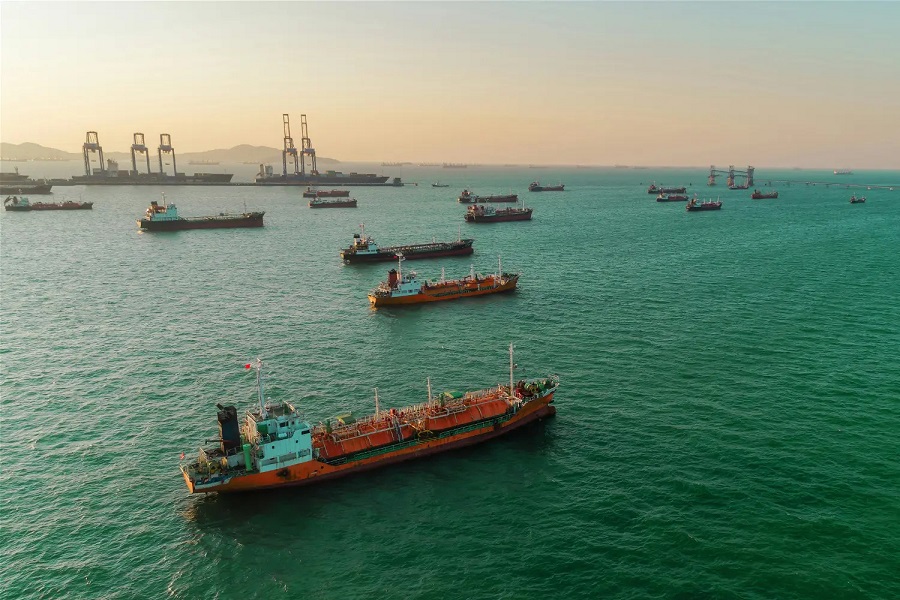11 Dec 2024

Tired Earth
By The Editorial Board

“CO2 is being transported from one country to another in order to fulfil regulatory requirements,” Wissing told journalists, after meeting with e-fuel experts and his counterparts from Lithuania and Morocco, at an international e-fuels conference earlier this week (4 June).
This practice would “contribute exactly nothing to climate protection,” he added.
Hydrogen-based synthetic fuels, known as e-fuels play a crucial role in the EU’s plans to decarbonise transport. In aviation and maritime transport, the EU has set minimum quotas for “renewable fuels of non-biological origin” (RFNBOs) as of 2030 and 2034, respectively, including hydrogen and e-fuels.
E-fuels are made with hydrogen and carbon dioxide from either the atmosphere or industrial plants, suitable for internal combustion or aircraft engines.
While most e-fuels are expected to be produced outside of Europe, where renewable energy will be available at a larger scale, EU rules for the CO2 used in e-fuels could force producers to physically transport liquified CO2 from Europe, to production sites outside the EU.
Moroccan e-fuel, but Spanish CO2
HIF EMEA, a producer of e-fuels, is currently planning production facilities in Morocco, for supply to the European market.
HIF EMEA chief executive officer, Thorsten Herdan told Euractiv, that for several planned projects in Morocco, “we are currently investigating where we can get the CO2 from,” Herdan said, adding that “one of the most promising options is indeed to capture it in Spain and then ship it to Morocco and put it into the hydrogen there.”
This was due to the EU’s RFNBOs rules, he explained, which only allow for the use of CO2 either captured from the atmosphere, from some biomass wastes, or – until 2041 – from industrial sites which are covered by a carbon pricing scheme, such as the EU’s Emissions Trading System (ETS).
The use of CO2 captured from a Spanish cement factory – which is covered by the ETS – would thus allow for the e-fuel to be considered as ‘renewable’ in the EU.
But “if I now have exactly the same cement plant […] in Morocco – where there are many cement plants – then I am not allowed to do so because the cement plant is not subject to emissions trading,” Herdan said.
EU rules for the sources of electricity and CO2 used to produce “renewable” e-fuels, such as synthetic kerosene, are set in two implementing rulebooks, known as delegated acts.
The Commission argues that only emissions subject to carbon pricing should be included, as the goal was “to incentivise abating emissions from non-sustainable fuels in the first place”.
Environmental NGOs, meanwhile, insist that CO2 from industrial plants should not be used at all for e-fuels, as this would lead to more CO2 ending up in the atmosphere, undermining the aim of carbon neutrality.
European versus international rules
For the aviation sector, the EU has regulated that 1.2% of all kerosene demand met with renewable e-kerosene by 2030, increasing to 35% by 2050.
In addition the Renewable Energy Directive requires EU countries to set a minimum quota for RFNBOs, of at least 1% of all fuels used across all transport modes, including road transport.
Investments into production sites for e-fuels, however, have not yet materialised at scale, and according to Wissing “we cannot expect blending quotas alone to solve the problem.”
“To believe that the state can simply set a quota and then the e-fuels will be available is something that all representatives have told us will not work,” Wissing said, pouring water on the EU ambitions.
A January 2024 analysis showed that of 25 planned industry-scale production sites for e-kerosene in Europe, none has yet reached a final investment decision.
“The European Union will not be able to meet its demand for e-fuels on its own. We need partners outside the EU and therefore standardised rules,” said Wissing.
While being concerned that setting up global rules could take a long time, Herdan said the EU could fix the issue of ‘CO2 tourism’ by creating a “molecule import law” which would set different rules for imported e-fuels, than for those produced within the EU.
Source : euractiv.com
Comment